On the evening of March 28, Xiaomi held a product launch event for its first car, the Xiaomi SU7.
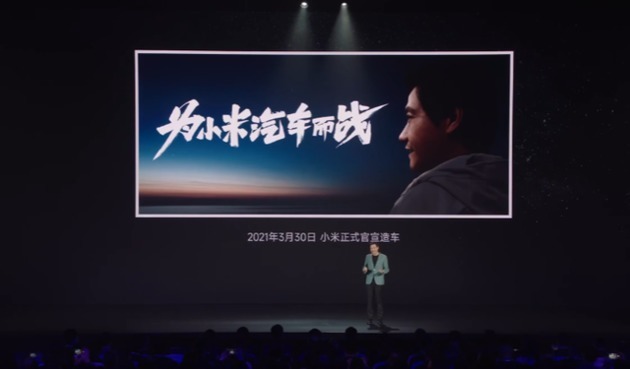
During the event, Lei Jun, Chairman of Xiaomi, revealed that 2023 saw 641 million global monthly active users, which provides a solid foundation for Xiaomi’s foray into the automotive industry. Additionally, Xiaomi plans to invest 24 billion yuan in research and development in 2024, demonstrating their commitment to car manufacturing.
Lei Jun expressed that the journey of building cars has been incredibly challenging. Even tech giants like Apple have abandoned their car projects.
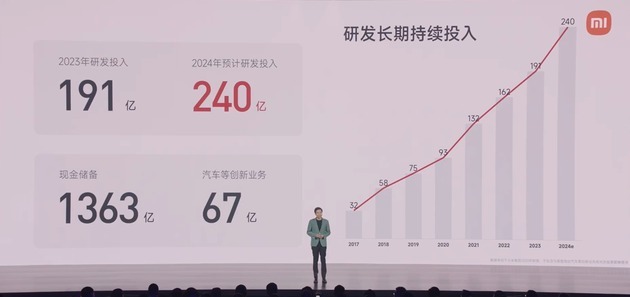
Several prominent figures from other Chinese electric vehicle companies attended the launch event, including Li Bin (Chairman and CEO of NIO), He Xiaopeng (Chairman and CEO of XPeng Motors), and Li Xiang (Chairman and CEO of Li Auto). Lei Jun thanked them for their valuable advice, which helped Xiaomi avoid many pitfalls.
Xiaomi SU7, which comes in two variants: The standard version is priced at 215,900 yuan. The SU7 Pro (a rear-wheel-drive, long-range, high-level intelligent driving version) is priced at 245,900 yuan. The SU7 Max version is price at 299,000 yuan.
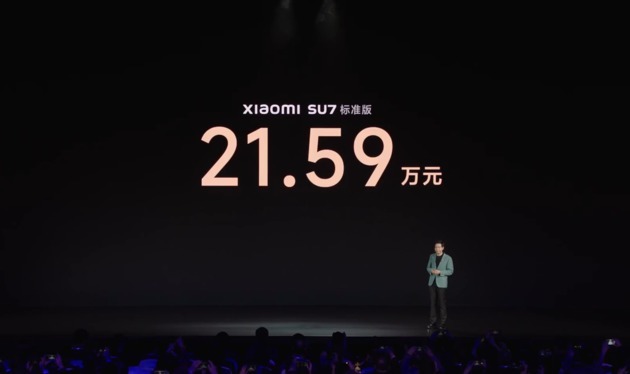
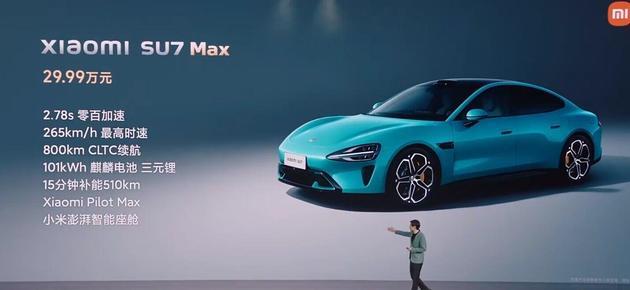
The Xiaomi SU7 offers a variety of colour options:
1. Sports Series: Gulf Blue | Lava Orange
2. Fashion Series: Elegant Gray | Meteor Blue | Aurora Purple
3. Luxury Series: Olive Green | Basalt Gray
4. Classic Series: Pearl White | Diamond Black
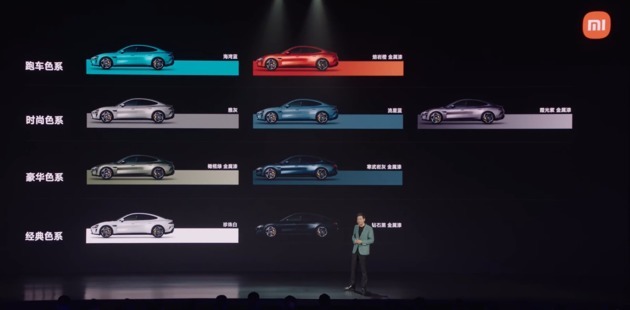
The design of the SU7 features smooth and full body curves, distinctive front wheel arches, a slightly raised tail, and halo-shaped taillights.
Lei Jun emphasized that Xiaomi aims to create distinctive design features, including water-drop-shaped headlights, halo taillights, a 175-degree ripple surface, and semi-hidden door handles.
In addition, Lei Jun also introduced four wheel hub designs, four tire options, and 32 storage compartments.
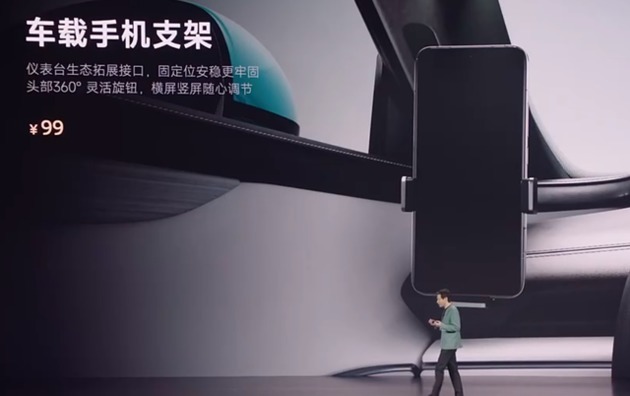
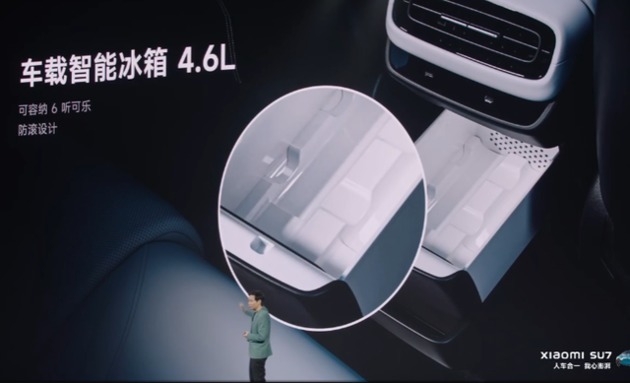
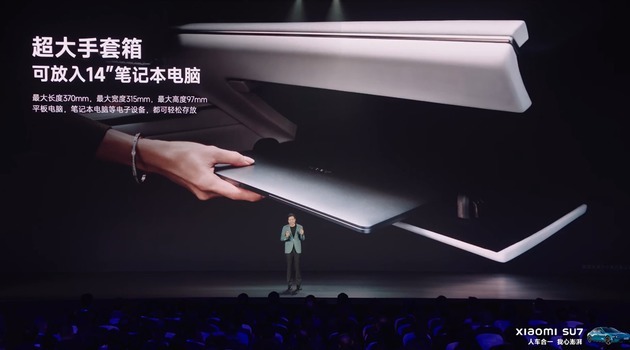
The Xiaomi SU7 achieves a 0-100 km/h acceleration in 2.78 seconds and a top speed of 265 km/h, directly benchmarking against the Porsche Taycan. Lei Jun expressed his excitement about the exhilarating driving experience.
In terms of range, the standard Xiaomi SU7 achieves a comprehensive range of 700 kilometers under CLTC conditions. Meanwhile, the SU7 Max boasts an impressive range of 810 kilometers, thanks to its NEDC battery from CATL. It is currently the only domestically produced electric vehicle that combines 2-second acceleration and over 800 kilometers of range.
Lei Jun acknowledged that battery contributes over 30% of the overall manufacturing cost. Despite recent price reductions, batteries are still a substantial investment.
Xiaomi is also planning to establish Xiaomi Super Charging Stations, adopting a 600 kW liquid-cooled ultra-fast charging solution. The initial cities in the plan include Beijing, Shanghai, and Hangzhou.
Additionally, Xiaomi’s intelligent driving solution, Xiaomi Pilot Max, will begin user testing in April, with official launch in 10 cities in May and nationwide availability in August.
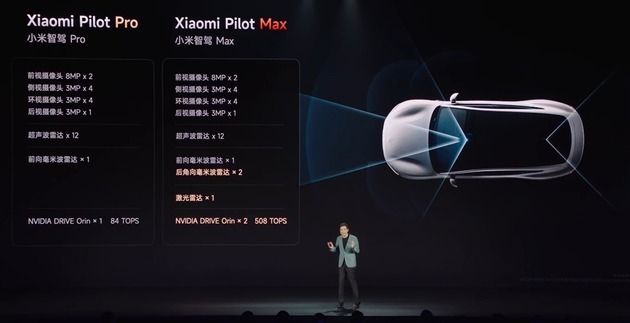
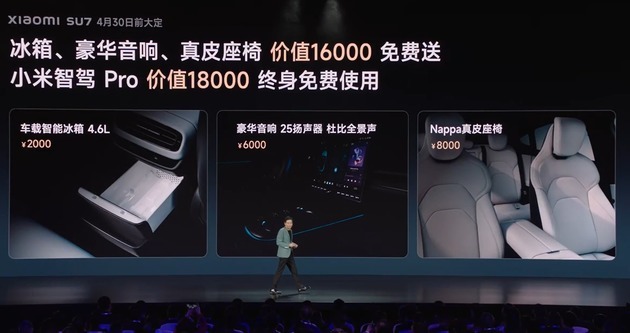
On March 28, several other Chinese electric vehicle manufacturers, including BYD, Li Auto, XPeng Motors, and Great Wall Motors welcomed Xiaomi’s entry into the automotive market via posts on Weibo, and Lei Jun expressed his gratitude.
On March 19, Xiaomi Group released its 2023 annual and Q4 performance report. The company achieved a total revenue of 271 billion yuan for the year, with an adjusted net profit of 19.3 billion yuan, representing a 126.3% year-on-year growth. The group’s gross profit margin reached a historic high of 21.2%. Q4 revenue rebounded to 73.2 billion yuan with an adjusted net profit of 4.9 billion yuan, up 236.1% year-on-year.


 川公网安备 51019002001991号
川公网安备 51019002001991号





